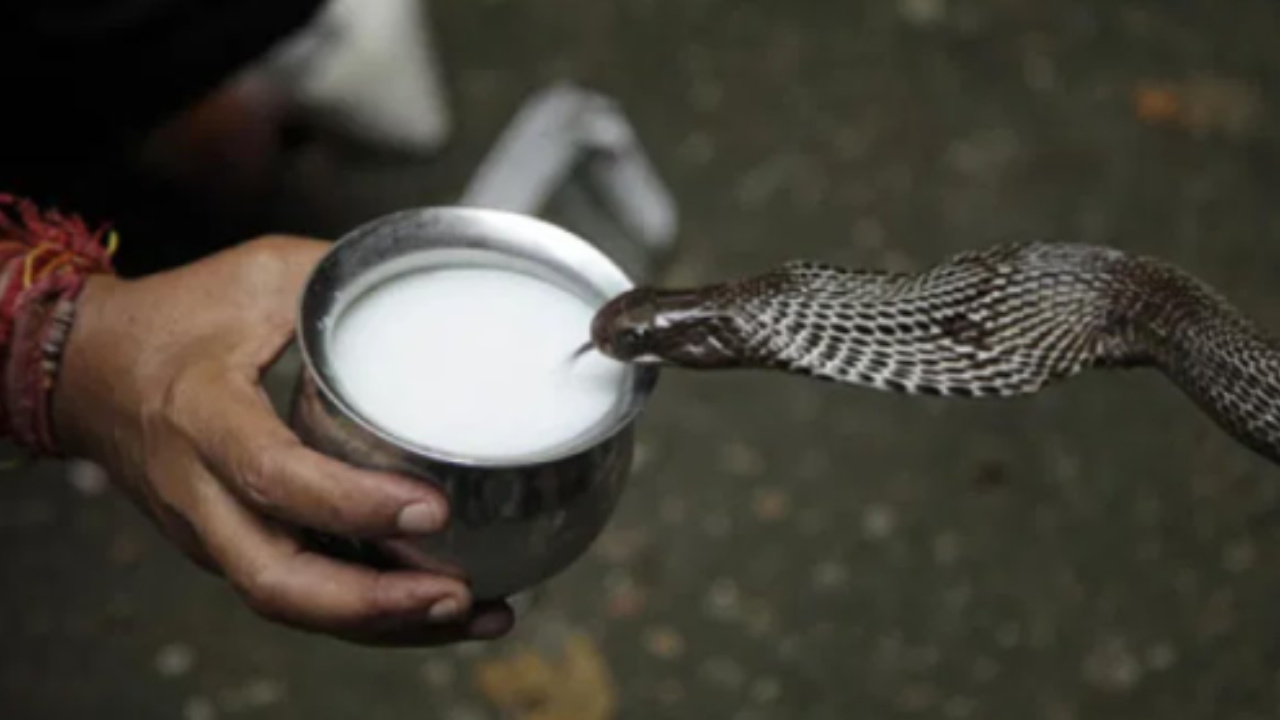Nag Panchami: Are We Killing Snakes by Feeding Them Milk?

Credits: YouTube
SummaryFeeding milk to snakes is a practice rooted in tradition and mythology, particularly in India, where it is believed that offering milk to snakes, especially during the festival of Nag Panchami, pleases the gods and brings good fortune. However, this age-old ritual, though well-intentioned, can have harmful and even fatal consequences for the reptiles.
End of Article
